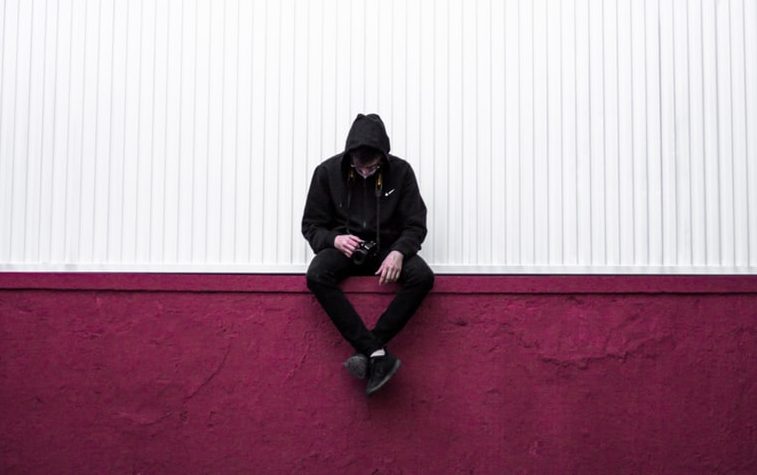Recovery from addiction is a difficult process that can leave one feeling alienated from friends, family, and loved ones. It is a real problem that deserves compassion, treatment, and help.
Substance use disorder often includes:
- Feeling the need to use drugs or drink alcohol often or regularly
- Having frequent, strong urges to use the substance
- Increasing the amount of the drug to reach a high
- Experiencing withdrawal symptoms
- Failing to meet daily obligations or engaging in risky behaviors
Individuals with a substance use disorder often harbor the secret for too long, afraid to tell others for a whole host of reasons while isolating themselves. You don’t have to live on an island – those who find the courage to allow themselves to open up about their struggles can be a major step on the path to recovery.
Those suffering often find themselves shrouded in guilt, shame, denial, or fear of confrontation. While feeling anxious about talking to others about your substance use is completely normal, letting others into your world takes an enormous amount of bravery that is wholly worth it, both for your sake and for the sake of everyone around you.
Opening up can be a scary proposition because you can’t control how people react. You do have control over your own world, however, and confronting the problem within yourself and sharing it can be a cathartic release. Those who understand will come around and support you once you when they hear your truth.
So who can you turn to about your addiction when you feel misunderstood?
A Family Member
Find the right moment to tell a loved one about your addiction. Go somewhere quiet and comfortable when the mood is calm and both sides are ready and willing to have a conversation. Access a space of balance and tranquility and push any feelings of anger or frustration aside, and just talk.
Remind your loved one that substance use disorder is a disease and that the road to recovery is long and winding. Let them know how important it is for you to be reaching out to them, and how crucial this is as a part of your journey. Explore viable treatment options with this person and show them how serious you are in conquering the problem.
Remember that honesty is key and do not be afraid to show your emotions. Let them know that you want to become your best self.
Your Life Partner
The person with whom you spend the most intimate moments should always be aware of what you’re going through – it’s only fair that your spouse, partner, or significant others know about your addiction. This person is your life mate, and honesty is the mark of a positive and healthy relationship.
While it’s understandable that you might feel like this is something that could jeopardize or end the relationship, it’s always worth the risk in order to strengthen your bond. Don’t ask yourself if you should tell your significant other, but when and how. Trust in their willingness to accept you for you are, and who you want to become. Reiterate that recovery is a process and that you appreciate the understanding and willingness to stand with you.
Try not to let any distractions or appointments get in the way of having a real discussion with this person. Select a time, place and manner that will help you be truthful and prepared for any tough questions and allow yourself to take the burden of secrecy off your shoulders.
A Close Friend
A true friend will be there when you need them. Depending on how close you are in your friendship, decide when and how to say anything about your addiction. If you are recovering from a dependency to alcohol, then naturally you will need to avoid circumstances and situations that involve drinking.
Let your friend know about your addiction and your wishes to live a life of sobriety. If you’ve been avoiding meeting up with a coworker for drinks after work on Friday nights, be honest about saying how you would rather spend your time. Real friends will respect your decisions and find new things to do with you.
Remember that you don’t have to tell everyone. If you have a very close friend with whom you share many interests and perspectives, then this may be a person with whom you feel comfortable sharing your substance use disorder. Evaluate what feels right to you and act accordingly.
Outdoor Groups
If your substance use disorder involves alcohol, opening up to a friend or family member that frequents bars, clubs, or similar establishments can be especially difficult. Discover the wide array of alternatives to bars that can allow you to connect with like-minded people over healthful activities like hiking, surfing, and team sports. Adventure outings are a therapeutic way to explore the natural world and enjoy communion with one’s greater surroundings.
Sign up for a yoga class and find innovative ways to harmonize your mind, body, and soul. These are all fantastic opportunities to heal the relationship with yourself while sparking new relationships with others.
Faith Communities
Finding peace and oneness through a Higher Power can give people the strength to fight habitual substance use, and faith communities can help one access the motivation necessary to heal. Recovering individuals who are spiritually-included often display lower anxiety, higher resilience to stress, a more optimistic outlook, and a greater perception of social support.
Twelve-step programs like Alcoholics Anonymous implement a “power greater than ourselves” in helping individuals regain control and restore sanity in overcoming their addiction.
Online Communities
Online recovery communities, from message boards to blogs to YouTube – are helping people seek solace and communion in linking people who are going through the same trials and tribulations. Seek out digital resources to assist you in your transformation.
Remember that an inner circle that is ready and willing to provide encouragement, comfort, and guidance doesn’t always have to be one that is solely in-person. Think outside the box, and have fun in exploring new ways to maintain wellness.
A Support Group
No matter what type of addiction you face, defeating it is a tough beast to tame. Recovery communities empower individuals in not only providing a healthy and comfortable space to detox but a built-in support system that continues long after you leave.
At Windward Way, we help men and women overcome addiction by providing community, connection, and purpose through embracing a holistic and personalized approach to addiction treatment that addresses the complex symptoms and diagnoses that contribute to a substance use disorder.
Call us at 855-491-7694 to talk to people who are ready to help.






